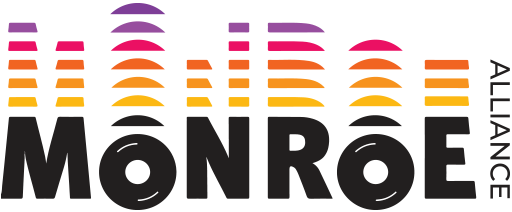Partners:
AIT Austrian Institute Of Technology
Tran-Gia Prof. Informationstechnik GmbH
Quality of Experience (QoE) is a well-known concept in the networking research community, but its development has been traditionally limited to laboratory studies. We are witnessing a growing demand from mobile operators for more user-centric approaches to manage their networks in an increasingly competitive scenario. This need has boosted the research interest in scaling QoE out of the lab, bringing it into the management of operational networks. This combined industry/research growing interest in QoE-based solutions for network management motivates the Mobi-QoE project.
Through the work in the project Mobi-QoE, on the one hand, MONROE’s testbed has been extended by adding new software (SW) tools as well as conducting innovative QoE-measurement experiments. The first target of Mobi-QoE was to extend MONROE’s testbed to the QoE domain, by integrating novel SW-based QoE-capable measurement tools and QoE subjective-models to assess the performance of MBB networks for popular enduser services (e.g., YouTube, Spotify, etc.) from a user-centric perspective. Such tools and models provide a multilayer monitoring perspective, measuring QoE-relevant features at the network and application layers, and forecasting end-user experience (e.g., MOS scores). Three software tools have been designed, developed and integrated within the MONROE testbed: Yomo-Docker [2], VideoMon Docker and Spotify-Container [2].
Yomo-Docker is a Docker container to actively measure QoE related KPIs of YouTube video streaming. The measurement concept is based on emulating a virtual end-user device requesting video streams, which are then monitored at the network and application layers, on the basis of QoE-relevant features. It is available on DockerHub (https://hub.docker.com/r/mobiqoe/yomo_docker/) by pulling mobiqoe/yomo_docker or on GitHub (https://github.com/lsinfo3/yomo-docker) in the yomo-docker repository.
VideoMon Docker is a MONROE container that plays headlessly video streaming. It originated from the cooperation within the MONROE project with Simula and the astream container. It performs both video streaming and network testing to best evaluate the QoE of adaptive video streaming. It is available in GitHub
(https://github.com/VideoMon/yomo-astream).
Using VideoMon Docker, we conducted a large-scale measurement campaign within the MONROE testbed and ran over 1800 experiments on 64 nodes.
Spotify-Container emulates a user using a Docker container, who streams audio in mobile networks with Spotify. As it is not possible to collect application layer parameters directly from the Spotify player, the Spotify API was used to query information about the audio stream. The Spotify-Container is available at https://go.uniwue.de/spotify-container.
The second target of Mobi-QoE was to evaluate MONROE’s testbed visibility in terms of QoE metrics. The Mobi-QoE team actively worked on QoE forecasting and assessment methodologies, advancing the state of the art in QoE for MBB networks, as well as the applicability of QoE concepts in the operational domain. To further show the benefits of the Mobi-QoE extensions to MONROE, the team worked on the systematic development and application of machine-learning-based models to study different MBB measurement problems from a QoE perspective, including benchmarking ISPs from a QoE perspective, analyzing the impact of mobility on QoE, diagnosing QoE-relevant degradation in MBB networks, etc. Several Mobi-QoE papers were published on these directions:
• “Streaming Characteristics of Spotify Sessions“ [1]
• “Concept and Implementation of Video QoE Measurements in a Mobile Broadband Testbed” [2]
• “Predicting QoE in Cellular Networks using Machine Learning and in-Smartphone Measurements” [3]
• “Enhancing Machine Learning based QoE Prediction by Ensemble Models” [4]
• “Unsupervised QoE Field Study for Mobile YouTube Video Streaming with YoMoApp” [5]
[1] “Streaming Characteristics of Spotify Sessions“ A. Schwind, F. Wamser, T. Gensler, M. Seufert, P. Casas, P. Tran-Gia Proceedings of the 10th International Conference on Quality of Multimedia Experience (QoMEX), 2nd International Workshop on Quality of Experience Management, 2018
[2] “Concept and Implementation of Video QoE Measurements in a Mobile Broadband Testbed” A. Schwind, M. Seufert, Ö. Alay, P. Casas, P. Tran-Gia, F. Wamser Proceedings of the 1st IEEE/IFIP Workshop on Mobile Network Measurement (MNM), 2017
[3] “Predicting QoE in Cellular Networks using Machine Learning and in-Smartphone Measurements” P. Casas, A. D’Alconzo, F. Wamser, M. Seufert, B. Gardlo, A. Schwind, P. Tran-Gia, R. Schatz Proceedings of the 9th International Conference on Quality of Multimedia Experience (QoMEX), 2017
[4] “Enhancing Machine Learning based QoE Prediction by Ensemble Models” P. Casas, M. Seufert, N. Wehner, A. Schwind, F. Wamser Proceedings of the 38th IEEE International Conference on Distributed Computing Systems (ICDCS), 3rd Workshop on QoE-based Analysis and Management of Data Communication Networks (Internet-QoE), 2018
[5] “Unsupervised QoE Field Study for Mobile YouTube Video Streaming with YoMoApp” M. Seufert, N. Wehner, F. Wamser, P. Casas, A. D’Alconzo, P. Tran-Gia Proceedings of the 9th International Conference on Quality of Multimedia Experience (QoMEX), 201

